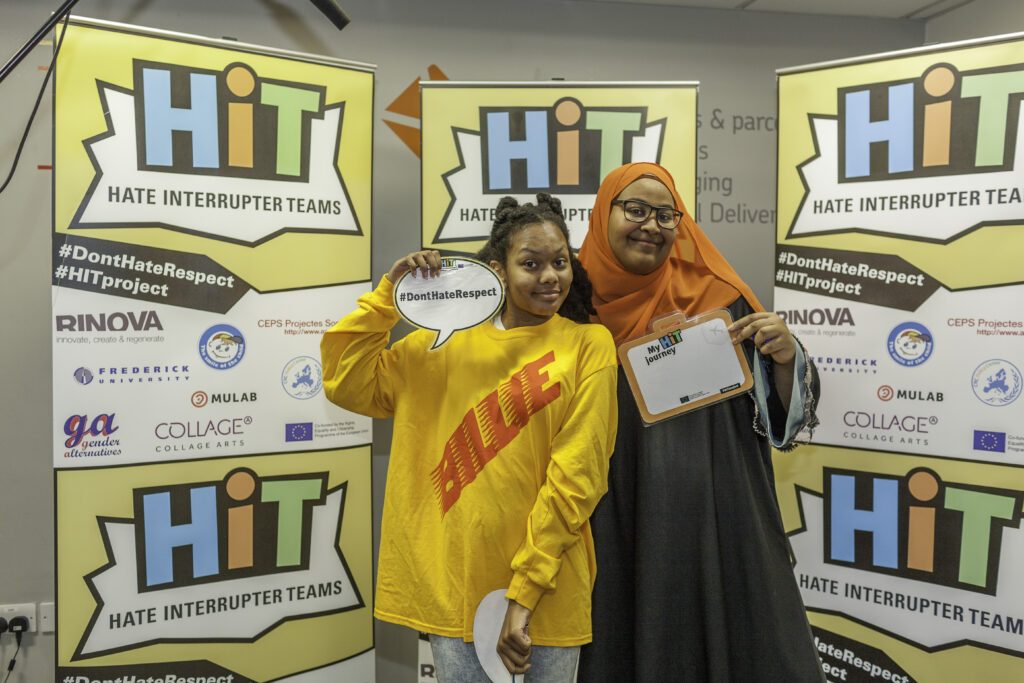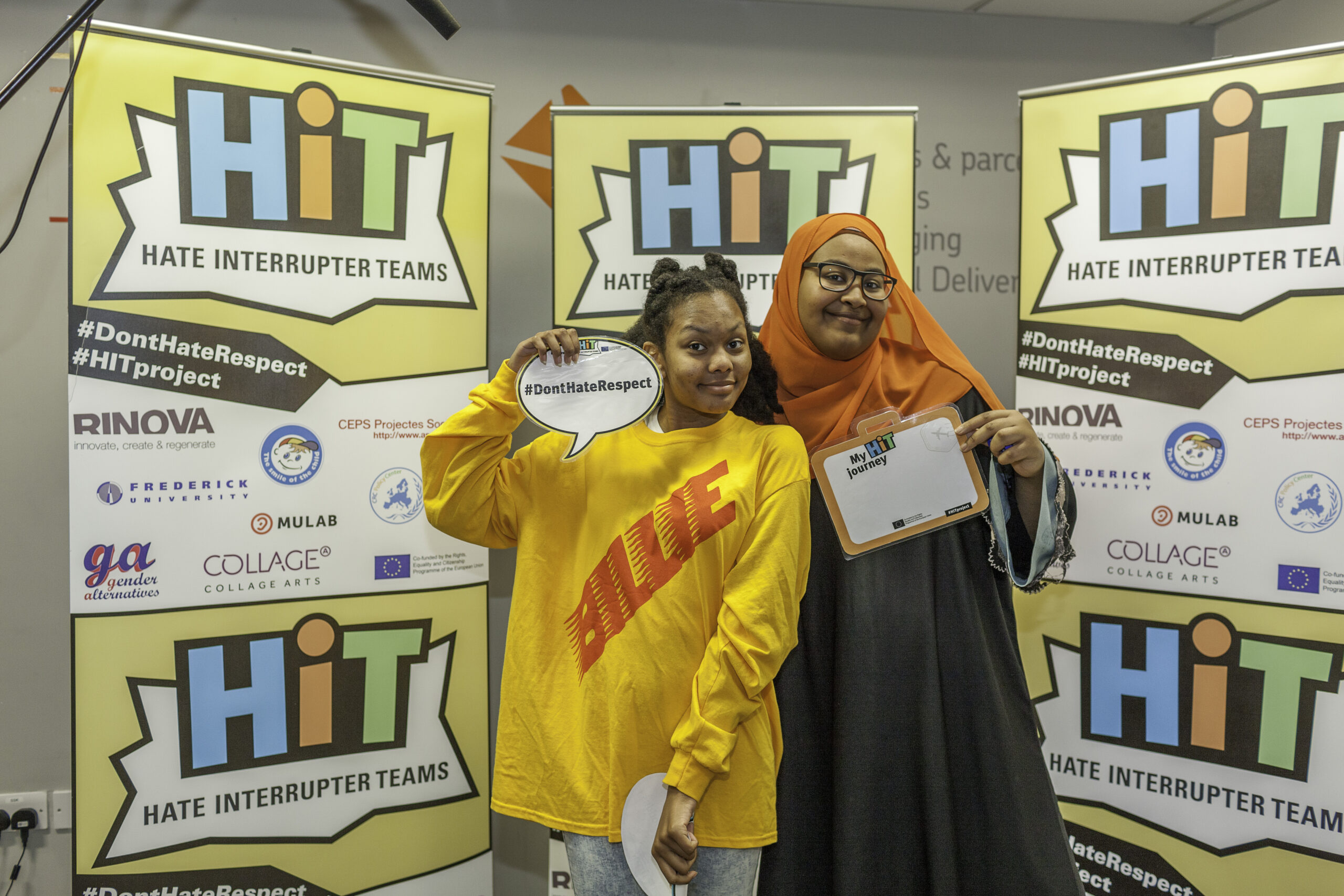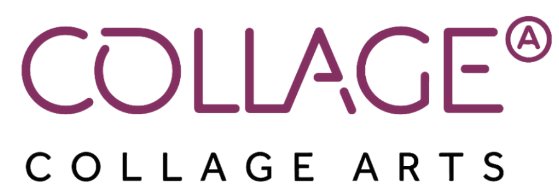
Does it make sense for schools to address anti-bullying from a single-issue perspective?
Last week we learned that the government has not renewed its funding for the school’s LGBTQ+ anti-bullying programme. The press has shared moving and sensitive stories about bullying within schools of young people whose process of coming out has been met with peer hostility and institutional indifference.
As a creative agency working in schools, we have been asking hard questions about the nature of interventions we should be making. Does it make sense for schools to address anti-bullying from a single-issue perspective?
Within the creative sector there has been a move towards less specificity in the way hate has been addressed. In the 1970s, Rock against Racism was the rallying call for countering the recruitment drive of fascist organisations. Over time this has become Love Music Hate Racism. More inclusive in terms of genres, but still focused within a single issue
Over the past 2 years, Collage Arts has been involved in an EU-funded project, HIT, aimed at reducing bullying and hate directed towards migrants. We welcomed this as a worthy initiative and carried out a range of programmes with young people.
What became clear to Collage from our research with young people was that we needed to be less prescriptive about the forms of hate young people were encouraged to address. This stance does not seek to undermine the need to support vulnerable young people who have migrated between countries.
Our premise is young people can be supported to build an authentic body of work based on their personal experiences of hate. Once they have explored how hate has impacted on them and their peer group, they will have greater empathy when they see the similar speech or behaviour targeted at others. We believe this will make them more likely to become hate interrupters. Young people fully understand how hate is targeted and the power it has. For many young people the number one issue is body image.
Young people’s identity is increasingly complex. The debate about transgender rights gets a lot of media attention. But many young people experience intersectionality. For example, if you are a Queer, Asian, Muslim, working class young person, building a sense of self is perhaps not best supported by singling out one of the determinants of that identity. In fact these young people will see themselves as more Muslim at some times and more working class at others. One of our consultees explained that her parents had different ethnic backgrounds, she explained that she felt like a Third Culture Kid. Her identity was informed by her parents, but it meant she had her own cultural DNA.
Building on our consultations with young people, Collage Arts is working with Haringey on a follow-up programme to the HIT project, which is called Voices Against Hate, which is led by young people to set both the parameters of the hate they wish to address, and creative responses they wish to make. The team working on the project act as mentors, coaches and technicians to help young people achieve their creative vision.
We made one other significant change. We have moved away from developing advocacy material designed for campaigns, as we were encouraged to in the EU project. In Voices Against Hate the Collage team is supporting young people to drop the materials from the toolkit into the conversations they find online and in social media which is straying towards hate speech and bullying.
This form of direct action will place young people more in control of the emerging narratives – but will require training and support to ensure that this is only done where young people are confident they are resilient enough to take on the haters, and that this is done in the context of supportive frameworks and policy from the schools or clubs the young people attend.
The Voices Against Hate approach needs to be supported with a strong programme of media literacy which helps them shape their belief systems. In this way, we will be shaping citizens who can help the UK capitalise on its diversity as a driver for social, cultural and economic development.

Projects to look out for:
Racism and Discrimination in Media and Creative Industries – Monday the 30 November at 5:15pm to 6:30pm, an industry panel explores ways to tackle discrimination.
The international Hate Interruption Teams partnership have been engaged in Intercultural Dialogue sessions with young people, stakeholders, trainers and youth workers over the past month. Next week, Collage Arts are hosting an Online Intercultural Dialogue session on Wednesday 2nd December, with partner organisations, stakeholders and young people from the project, where we will be jointly develop HIT2021 a common youth strategy towards eradicating Hate Speech and Behaviour across Europe. Register your interest on our HIT mailing list here if you’d like to receive updates on Collage Arts HIT and the current Voices against hate projects.
About HIT Project and Collage Arts
Collage Arts and the HIT partnership have been empowering young people aged 14-19s in London, Rome, Berlin, Barcelona, Nicosia, Athens and Plovdiv to work together collaboratively as Hate Interrupter Teams (HITs) and develop positive (creative) media campaigns to tackle hate speech and behaviour online and offline, develop tools and good practice to support other young people, particularly from ethnic minorities.

Disclaimer: The HIT project (REC-RRAC-RACI-AG-2017-807861) has been co-financed with the support of the European Commission’s DG Justice and Consumers: Rights Equality and Citizenship Programme. Its contents and materials are the sole responsibility of its authors. The Commission cannot be held responsible for any use which may be made of the information contained therein.
